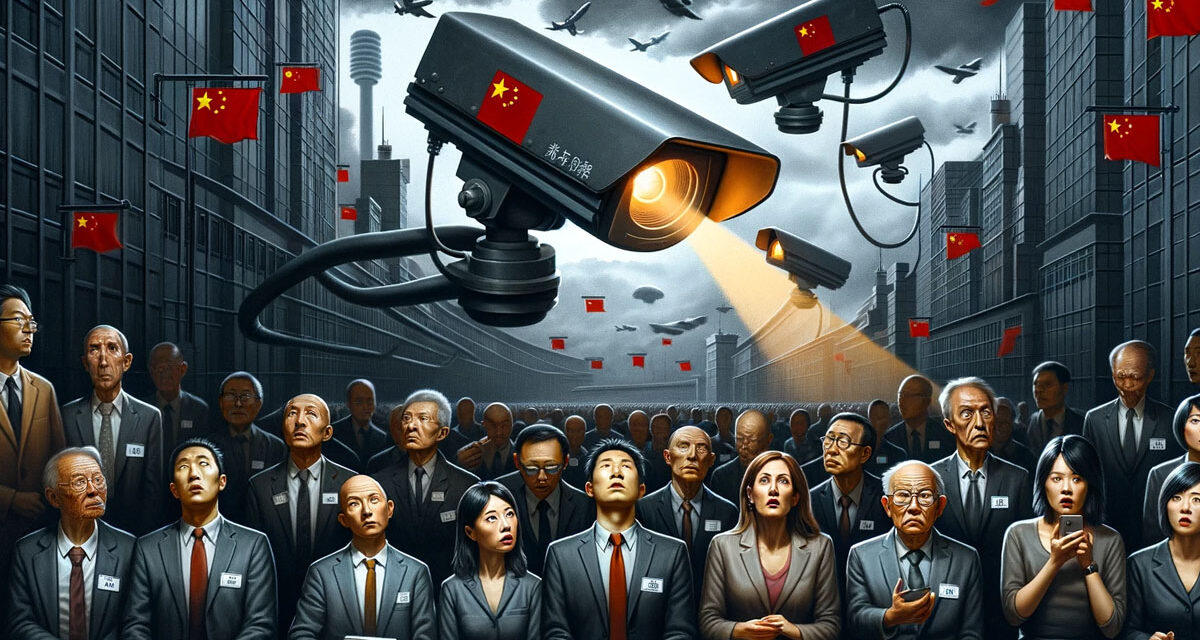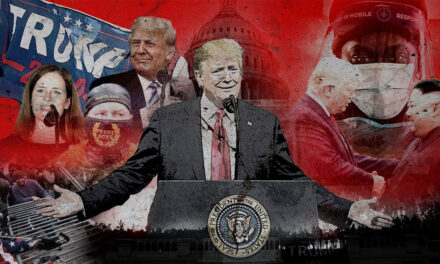
China’s Revised State Secrets Law: Vague Enough That Anyone Can Be Arrested

China’s amendment to its State Secrets Law, effective from early May 2024, has cast a long shadow over the international landscape, particularly affecting foreign nationals and businesses with ties to China. The expansion of what constitutes a “state secret” to include “work secrets” has not only broadened the law’s reach but also intensified the atmosphere of surveillance and control, fostering a climate of fear and uncertainty that could have far-reaching consequences for global freedoms and economic activities.
Taiwan’s Stark Warning
The government of Taiwan was quick to respond to these developments, issuing a dire warning to its citizens about the dangers of traveling to or conducting business with China. The Mainland Affairs Council highlighted the law’s “vague and unpredictable nature,” which could entrap individuals for seemingly minor or unintended violations. “The revised law is highly vague and may cause people to break the law at any time,” the council cautioned, urging citizens to avoid non-essential travel to the mainland. This advisory reflects deep-seated concerns about the arbitrary application of the law and its potential to be used as a tool for political repression.
The Broadening Scope of “State Secrets”
The revised law’s inclusion of “work secrets” significantly expands the type of information that could be deemed sensitive. This includes various data that businesses typically handle, such as financial forecasts, technological innovations, and internal strategy documents. The ambiguity surrounding what exactly qualifies as a “work secret” creates a precarious situation for businesses, where normal operations could suddenly be interpreted as espionage or a breach of national security.
Legal experts and corporate advisors are sounding the alarm about the potential misuse of these vague definitions to further tighten the noose around the necks of foreign enterprises. For example, WilmerHale, a U.S.-based law firm, pointed out the dangers of such ambiguity: “Work secrets could presumably include information obtained through conventional research and due diligence… The inclusion of this term in the State Secrets Law… may lead to self-censorship and impair ordinary business operations.” This sentiment underscores a broader fear that the law could be weaponized to stifle competition and innovation by labeling normal business practices as threats to national security.
Enhanced Digital Surveillance and the Role of Internet Companies
With the digital realm being an integral part of modern life and commerce, the law’s stringent requirements for internet companies like Tencent, Weibo, and Douyin to monitor, report, and delete sensitive content represent a significant escalation in state control over information. These companies are now frontline actors in a state-led drama of surveillance, required to act swiftly against any content that might be perceived as a threat to national security. This not only impacts the freedom of expression online but also places these companies in a precarious position, balancing between legal compliance and protecting user privacy.
International Concerns and the Chilling Effect on Global Business
The international response has been one of apprehension and restraint. Multinational corporations are particularly wary of the heightened risks associated with the expanded definitions of state secrets. The law adds another layer of complexity to the already challenging environment of doing business in China, where sudden detentions and raids have become more frequent. Companies are now forced to tread even more cautiously, which could lead to reduced investments and a scaling back of operations, ultimately affecting China’s own economic landscape.
“The chilling effect now is definite,” commented U.S.-based current affairs analyst Li Hengqing to Radio Free Asia, reflecting on the broader implications of the law for foreign business sentiments. This chilling effect is likely to deter not just business investments but also academic and cultural exchanges, which are vital for a thriving global community.
The revised State Secrets Law casts a long shadow, creating an environment of uncertainty and fear that reaches far beyond China’s borders. Businesses, academics, and ordinary citizens must now navigate a complex minefield, where any misstep could have serious personal and professional repercussions.
In conclusion, the revised State Secrets Law in China echoes the dystopian themes of George Orwell’s “1984,” with its broad definitions and stringent surveillance measures. The inclusion of “work secrets” creates an atmosphere of fear and self-censorship, reminiscent of Orwell’s concept of thoughtcrime. This climate stifles free expression and innovation, as individuals and businesses may avoid normal activities out of fear of retribution. Such developments highlight the profound implications of this law, not only on personal freedoms but also on the broader dynamics of global interaction with China. This will get worse before it gets better.

























And China still wonders why investors are staying away and why major companies such as Apple and others are leaving.